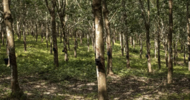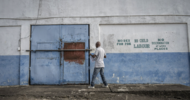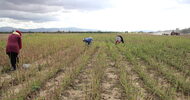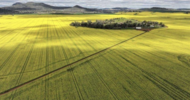
Reuters | Wednesday, 11 November 2009
by Amena Bakr
Iraq is close to concluding a multi-billion dollar agriculture deal with a private sector firm in the UAE to lease farmland on a long-term basis, an official said on Wednesday.
Gulf countries, mainly reliant on food imports, have increased efforts over the last year to buy or lease land in developing nations to secure food supplies.
"We are in the final stages of signing a multi-billion dollar deal with a UAE company which would invest in our agriculture sector and the produce will be shared," Sami R Al Araji, the chairman of Iraq's National Investment Commission told Reuters in a telephone interview.
The company would lease the land over a long-term basis, since foreign ownership of farmland in Iraq is forbidden, Araji added, declining to give further details on the project or to name the company.
"Products such as wheat and barley will be grown, but more importantly the investment will include the installation of a water management system," he said.
"And this will not be a joint-venture project, it's just a direct foreign investment and is the biggest deal we have in this sector so far."
Farming in Iraq has been hit hard by decades of war, instability and poor environmental management.
Iraq imports almost all of its food, using receipts from oil to pay for it. Much of the government's budget is spent on food rations.
Declining productivity in Iraq's farmland is largely a result of soil salinization, which is caused by poor drainage.
"Agriculture companies from Germany and the United States have also shown interest in developing a project in Iraq, but nothing is final yet," said Araji.
In June, the government said that around $18 billion in investments was needed to restore the majority of farmland.
Last December the government started a project to restore six million acres (2.5 million hectares) of farmland.
The project aimed to flush excess salinity out of millions of acres of land and cleanse rivers, breathing new life into what was once part of what historians called the "fertile crescent".












